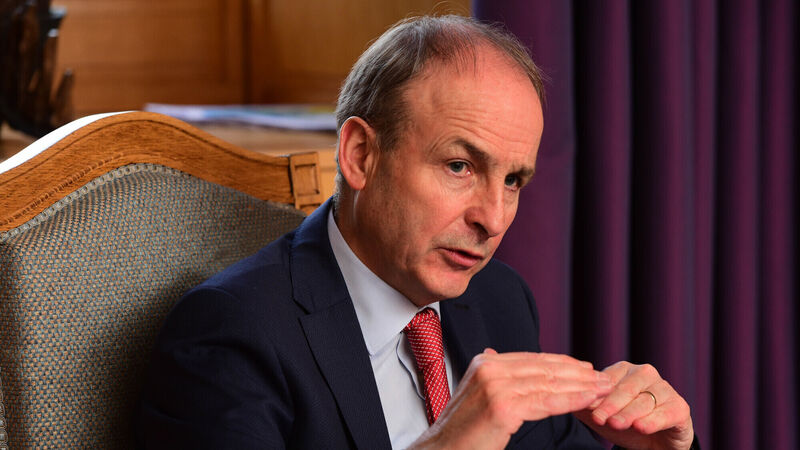'Fair wind' should Government need to borrow billions more if Covid lockdown lasts longer

Taoiseach Micheál Martin. The Government should have little difficulty in raising billions more should the Covid-19 lockdown go on longer and the rollout of vaccines be delayed further. Picture: Moya Nolan
Market interest rates, or yields, of Irish sovereign bonds have risen but remain in negative territory, meaning the Government should have little difficulty in raising billions more should the Covid-19 lockdown go on longer and the rollout of vaccines be delayed further.
As recently as early January, the Government's debt office, the National Treasury Management Agency, or NTMA, launched its 2021 funding campaign by raising €5.5bn by selling a new 10-year benchmark bond and paying a negative yield of around 0.25%.











